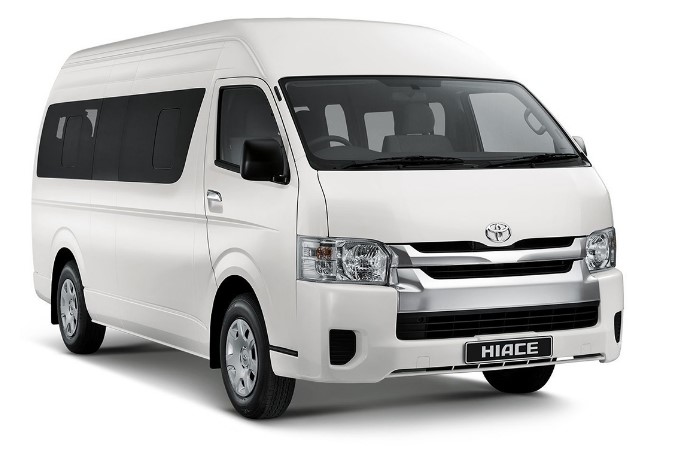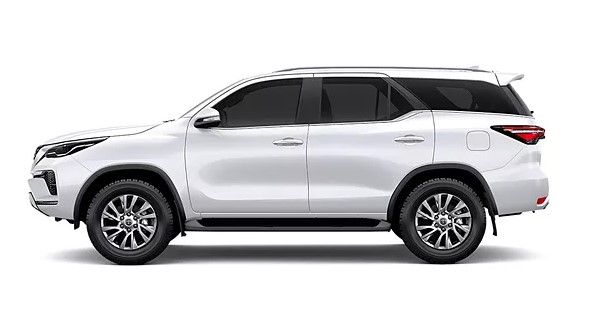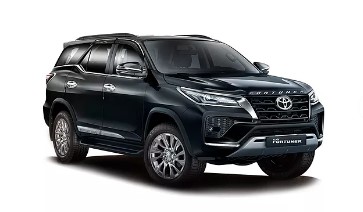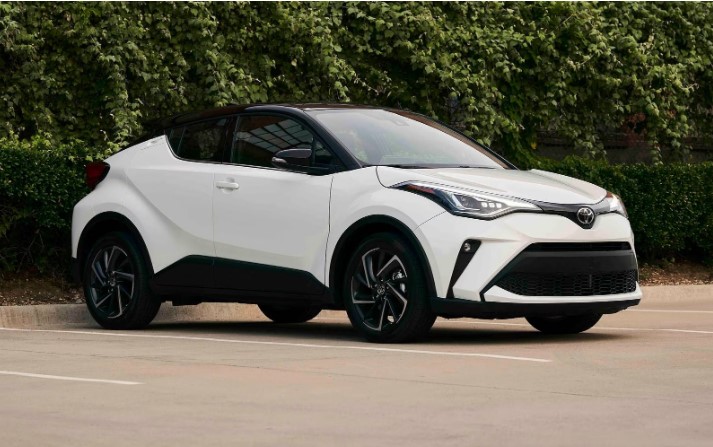Toyota Motor Corporation is a Japanese multinational automotive manufacturer headquartered in Toyota City, Aichi, Japan. It was founded by Kiichiro Toyoda and incorporated on August 28, 1937. Toyota company is one of the largest automobile manufacturers in the world, producing about 10 million vehicles per year.Here you can gets information about Toyota supra price in india
Toyota, a name synonymous with quality and reliability, has carved a significant space in the ever-evolving Indian automobile market. This article delves into Toyota’s key features in India, analyzes sales volume across markets, explores pricing strategies, and sheds light on the competitive landscape.
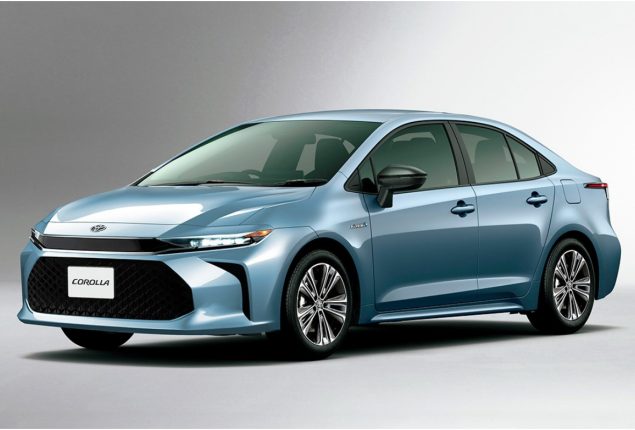
Key Features of Toyota in India:
· Brand Legacy: Toyota enjoys a strong brand image built on a foundation of trust and reliability. Indian customers associate Toyota vehicles with durability, low maintenance costs, and strong resale value.
· Manufacturing Prowess: Toyota Kirloskar Motor (TKM), a joint venture with the Kirloskar Group, operates two manufacturing plants in India. This localized production ensures efficient operations, cost-competitiveness, and quicker turnaround times.
· Extensive Dealer Network: Toyota boasts a robust network of dealerships spread across major cities and towns in India. These dealerships offer excellent customer service, ensuring a seamless buying and ownership experience.
· Focus on After-Sales Service: Toyota prioritizes customer satisfaction by providing top-notch after-sales service. This includes readily available spare parts, well-trained service technicians, and a commitment to resolving customer concerns effectively.
· Diverse Product Portfolio: While not as extensive as the global offerings, Toyota offers a well-rounded product portfolio in India. This includes popular models catering to various segments, such as hatchbacks (Glanza, Urban Cruiser), sedans (Camry), SUVs (Fortuner, RAV4), and MPVs (Innova Crysta).
Sales Volume and Market Reach:
· Market Focus: Toyota primarily focuses on the mid-size and premium car segments in India. This strategic approach caters to customers seeking reliable and feature-rich vehicles, even if it means a slightly higher price point compared to some competitors.
· Regional Variations: Sales volume varies across different regions in India. Major cities and urban areas account for a significant portion of Toyota’s sales due to higher disposable income levels and a growing preference for premium vehicles.
· Market Share: While Toyota isn’t a market leader in terms of overall sales volume, it holds a respectable position in specific segments. For instance, the Innova Crysta dominates the MPV segment, highlighting Toyota’s success in catering to specific customer needs.
Pricing Strategy:
· Premium Positioning: Toyota vehicles generally command a price premium compared to many competitors in India. This pricing strategy aligns with the brand’s focus on quality, reliability, and superior after-sales service.
· Value for Money: Despite the premium positioning, Toyota strives to offer value for money. This is achieved through features like lower maintenance costs, superior fuel efficiency, and extended vehicle life, leading to a lower total cost of ownership in the long run.
· Competitive Landscape: The Indian auto market is fiercely competitive, with players offering aggressive pricing tactics. Toyota needs to maintain a balance between its premium image and price competitiveness to attract new customers.
SWOT Analysis of Toyota in India
Strengths:
· Brand Reputation: Toyota enjoys a strong brand image in India, synonymous with reliability, quality, and fuel efficiency.
· Manufacturing Strength: TKM’s established manufacturing plants ensure efficient production and cost-competitiveness.
· Extensive Dealer Network: Toyota boasts a wide network of dealerships across India, providing excellent customer service and accessibility.
· Focus on After-Sales Service: Toyota prioritizes after-sales service, offering a positive ownership experience.
· Product Portfolio: Toyota offers a diverse product portfolio catering to various segments, including hatchbacks, sedans, SUVs, and MPVs.
Weaknesses:
· Limited Product Portfolio Compared to Global Market: Toyota’s Indian offerings are fewer compared to their global portfolio, potentially missing out on market segments.
· Price Premium: Toyota vehicles generally command a price premium compared to some competitors, which might deter budget-conscious buyers.
· Limited Focus on Electric Vehicles (EVs): While the global market embraces EVs, Toyota’s EV presence in India is minimal, potentially hindering future growth.
Opportunities:
· Growing Indian Auto Market: The Indian automobile market is expected to continue growing, presenting significant opportunities for expansion.
· Rising Demand for SUVs and Premium Cars: The increasing demand for SUVs and premium cars aligns well with Toyota’s product offerings.
· Government Focus on Electrification: As the Indian government pushes for electric mobility, Toyota has a chance to leverage its hybrid technology and establish a foothold in the EV segment.
Threats:
· Intense Competition: The Indian automotive market is fiercely competitive, with established players like Maruti Suzuki and Hyundai, as well as aggressive newcomers like Kia and MG Motors.
· Rising Fuel Prices: Fluctuating fuel prices can impact the demand for gasoline-powered vehicles, potentially affecting Toyota to some extent.
· Stricter Emission Regulations: The Indian government’s increasingly stringent emission regulations could pose challenges for Toyota if they don’t adapt their technology.
Main Competitors in the Indian Market:
· Maruti Suzuki: The undisputed leader in the Indian market, Maruti Suzuki offers a wide range of budget-friendly and fuel-efficient cars, posing a significant challenge to Toyota in terms of sheer volume.
· Hyundai: A strong competitor with a diverse product portfolio, Hyundai offers feature-loaded cars at competitive prices. Their focus on SUVs and premium segment directly competes with Toyota.
· Kia Motors: A relatively new entrant, Kia Motors has gained traction with its stylish and feature-rich SUVs, potentially attracting customers considering Toyota vehicles.
· Mahindra & Mahindra: Mahindra, a domestic automaker, offers a strong value proposition with SUVs and MPVs at competitive prices. While catering to a different segment, Mahindra still presents some competition
Owner of Toyota company
Kiichiro Toyoda is the Owner of Toyota company,He was born June 11, 1894, Kosai, Shizuoka, Japa.The current President and CEO of Toyota Motor Corporation is Akio Toyoda. He is the grandson of the company’s founder, Kiichiro Toyoda

Modals
Here we can explain all Toyotal car modals name.
| Corolla | Prius |
| Camry | Yaris |
| Supra | Fortuner |
| Toyota Hilux | Toyota Land Cruiser |
| Rav4 | Toyota HiAce |
| Highlander | 4Runner |
| Land Cruiser Prado | Toyota C-HR |
| Crown | Corolla Cross |
| Sequoia | Toyota Celica |
| Toyota Auris | Sienna |
| Toyota Proace Verso | Toyota Yaris Cross |
| Alphard | Venza |

TOP 5 Toyota car modals name and Price
| Modals | Years | Price |
| Toyota RAV4 | 2024 | 50.00 Lakh – 60.00 Lakh |
| Toyota Highlander | 2024 | 43-46 Lakhs |
| Toyota Prius | 2024 | 45.43 Lakh |
| Toyota Corolla | 15.87 – 19.91 lakh | |
| Toyota Tundra | 28.65 – 59.17 Lakh |

History of Toyota company
Toyota is japanees company,Kiichiro Toyoda is the founder of Toyota company.It is the best and largest automobile manufacturers in the world. it is made August 28, 1937, Japan

Toyota official company name
Toyota Motor Corporation
Toyota Motor Corporation was founded by the Toyoda family. The word “Toyoda” uses ten Japanese strokes to write while “Toyota” uses only eight. Eight is considered a lucky number in Japanese culture.
full meaning of Toyota
Toyota is a variation of the name Toyoda. The original Toyoda company invented and produced numerous types of looms. In 1933, Toyoda decided to foray into the automotive market, expanding greatly in 1956 after steady successes. Toyoda means “fertile rice patty” referring to Japan’s most prominent cash crop.07-Dec-2019
Toyota successful
Toyota’s main success factors
JIT Production, together with lean manufacturing, is the main success factor of the company, which helps it maintain its dominant position in the automobile industry worldwide.

Designed Toyota logo
Interestingly, the Toyota symbol as we know it today wasn’t actually designed by Toyota but was instead chosen from a total of 46,000 logo options after a company announced a contest to help them find the best new brand image in 1936.
Toyota in profit or loss
Operating profit for the three months ended Dec. 31 was 956.7 billion yen ($7.28 billion). That beat the average 764.54 billion yen profit estimated by 10 analysts, according to Refinitiv data. In the same period a year earlier, Toyota reported a 784.4 billion yen profit.09-Feb-202

Why is it named Toyota?
Toyota Motor Corporation was founded by the Toyoda family. The word “Toyoda” uses ten Japanese strokes to write while “Toyota” uses only eight. Eight is considered a lucky number in Japanese culture. For these reasons “Toyota” was chosen as the company’s name.
FAQs about Toyota in India
Q: What are the most popular Toyota models in India?
A: The Innova Crysta (MPV), Fortuner (SUV), Glanza (hatchback), and Urban Cruiser (SUV) are some of Toyota’s most popular models in India.
Q: Are Toyota cars expensive to maintain in India?
A: While the initial purchase price might be higher, Toyota cars are known for their lower maintenance costs and longer lifespans, potentially leading to a lower total cost of ownership in the long run.
Q: Does Toyota offer any electric vehicles in India?
A: As of April 2024, Toyota doesn’t have a significant presence in the electric vehicle segment in India. However, their hybrid technology could pave the way for future introductions of fully electric vehicles.
Conclusion
Toyota has established a strong reputation in the Indian market, synonymous with reliability, quality, and a premium ownership experience. By leveraging its brand legacy, focusing on customer satisfaction, and strategically expanding its product portfolio (including potential future EVs), Toyota is well-position


